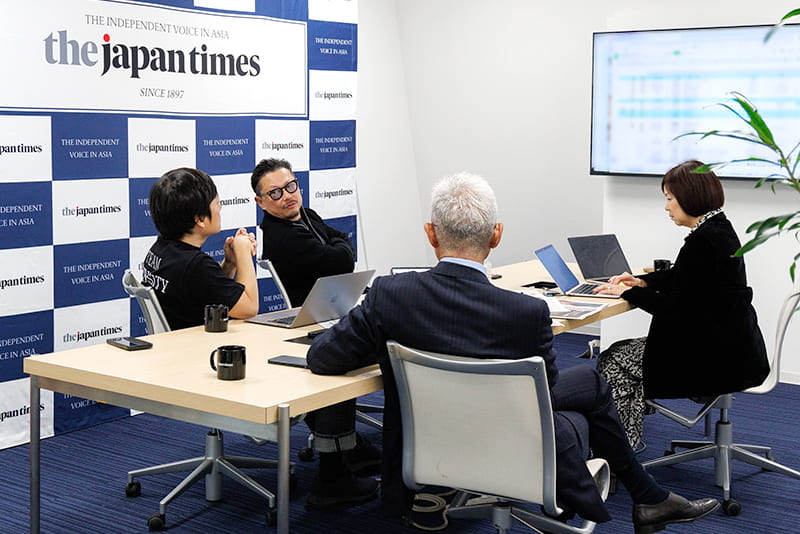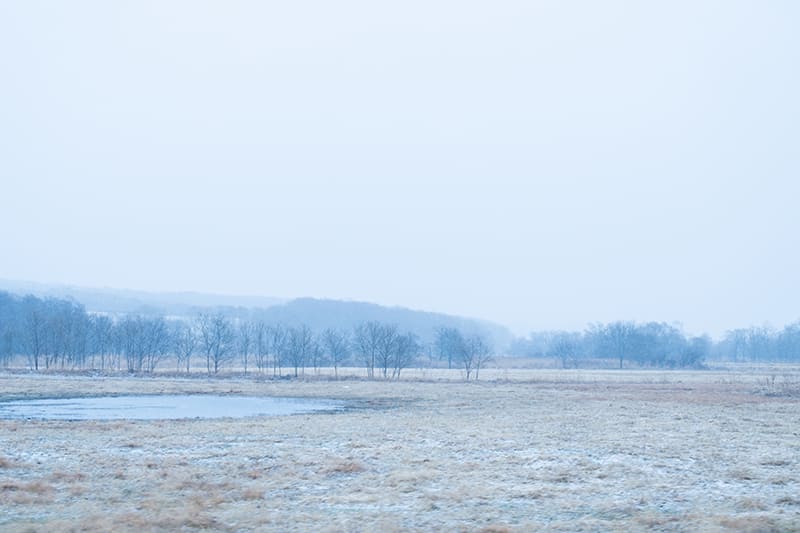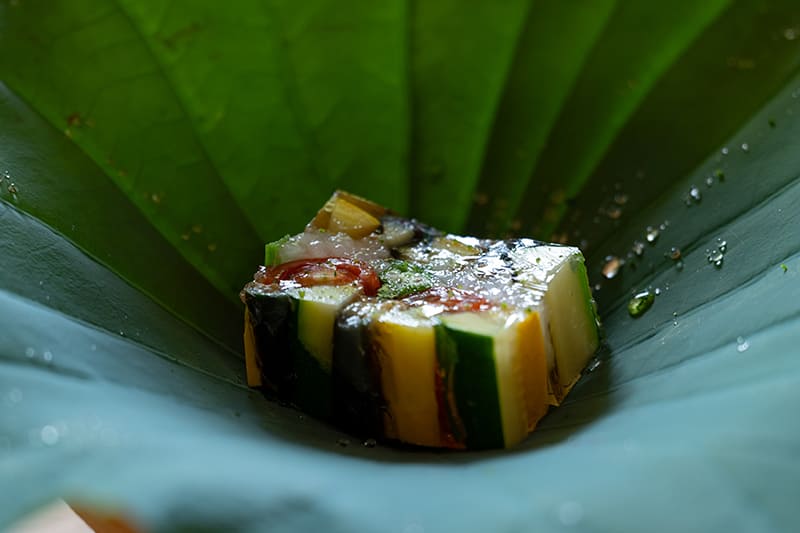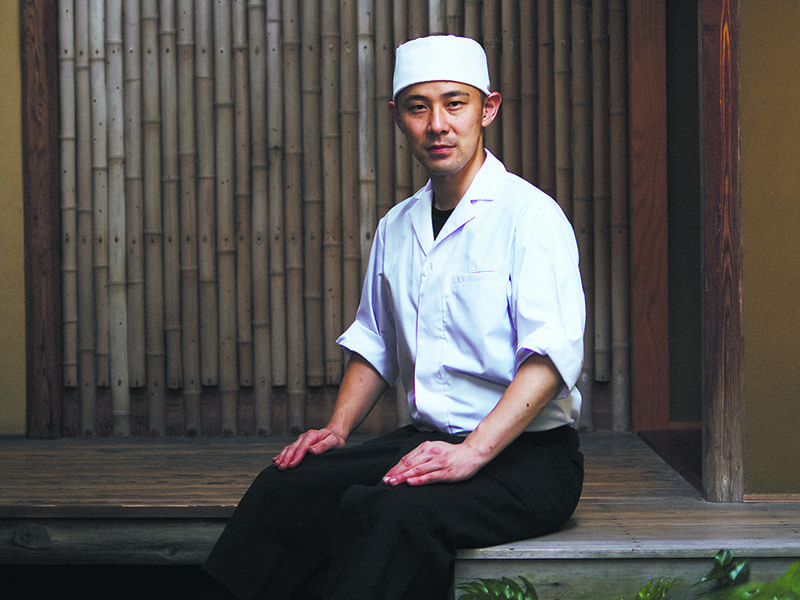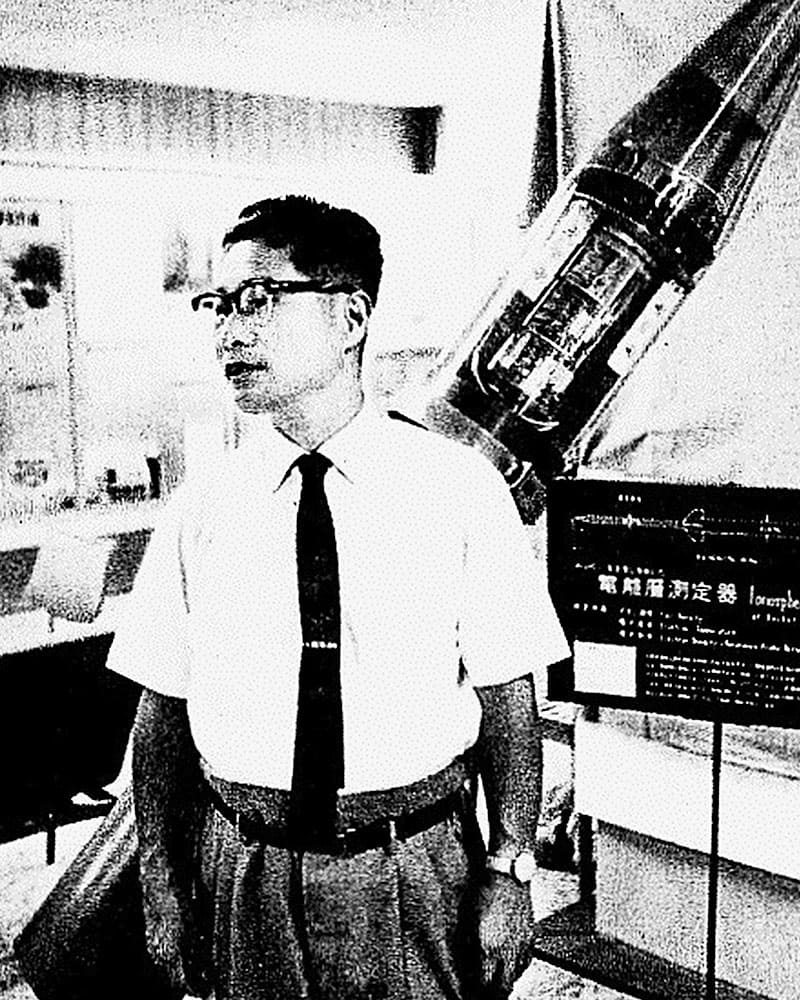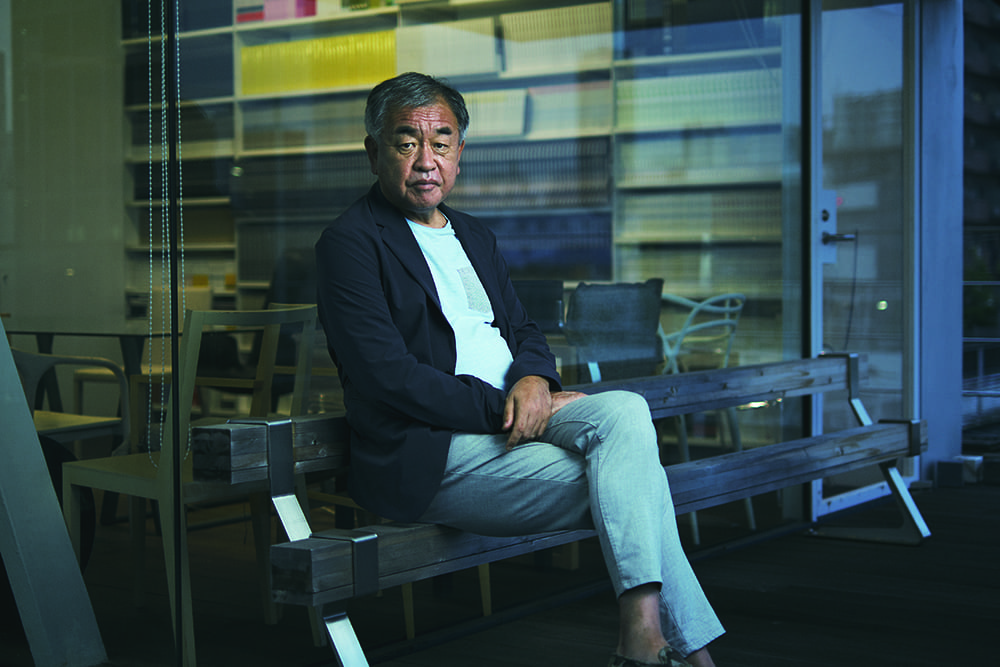April 28, 2022
From rural herb garden, gaze at sacred Tateyama
TOYAMA
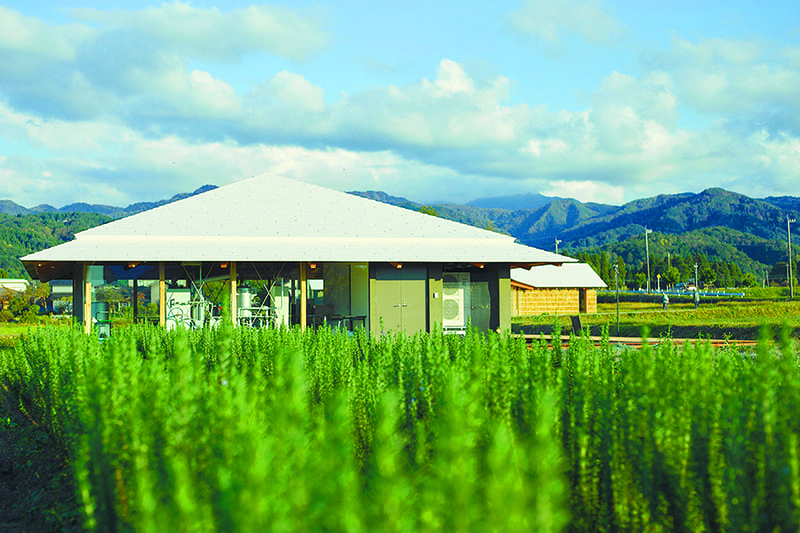
The Nara Period poet and statesman Otomo no Yakamochi (718-785) was captivated by Mount Tate in the province of Etchu, today’s Toyama Prefecture, where he was serving in a government post. His poem about the mountain appears in the Man’yoshu: “I never tire of gazing at Tateyama, where even in summer the snow does not melt. This must be the gods’ mountain.”
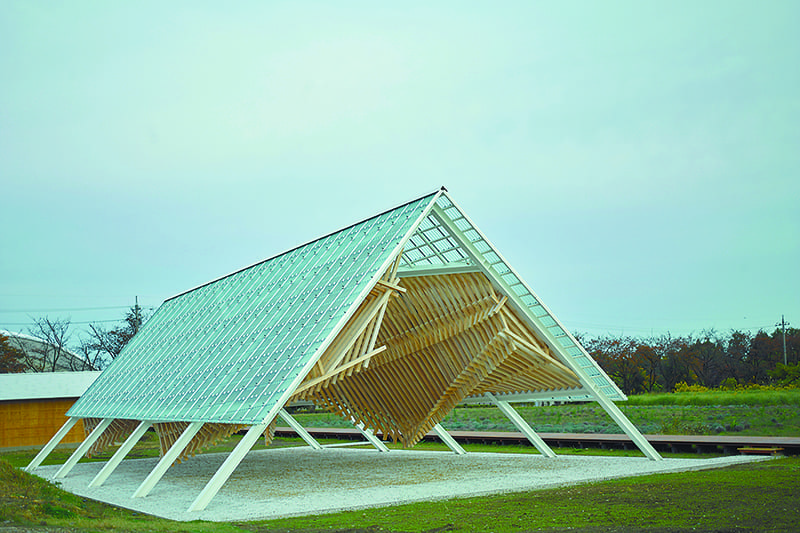
The bucolic landscape of Toyama commands views of Tateyama, regarded as a sacred peak since ancient times. This unspoiled Japanese scenery, beloved since antiquity, is the setting of an ongoing project to create a health-themed complex that aims to become the “world’s most beautiful village.” The project is being carried out by Maeda Pharmaceutical Industry Co. Ltd., which is based in Toyama. It all started when the company’s president, Daisuke Maeda, became ill amid a demanding work schedule but recovered his physical and mental well-being upon visiting an aromatherapy salon. Through this experience he realized that herbs were the starting point of medicine. The company began cultivating herbs and manufacturing and marketing aroma-based products. Of the many pharmaceutical companies in Japan, Maeda is the only one that grows its own herbs and extracts aromatic oils. In addition to creating health care products, the program aims to produce content on prolonging healthy longevity and to realize Maeda’s wish to help many people enjoy good health while aspiring to a sustainable society.
The base of these activities is Healthian-wood, which opened in March 2020. The 7-hectare site encompasses beautiful landscapes in which people have long lived with nature. Visiting the site himself, Maeda selected it from among 200 possible locations and persuaded the landholder to transfer ownership. The grounds now include a 3-hectare herb garden. Visitors are welcomed at the restaurant The Kitchen, which serves dishes showcasing local ingredients and herbs, and the wellness center The Spa. A lodging facility with a sauna (to be rented out to one group at a time) is set to open this spring.
Rice paddies, the landscape at the origin of Japanese culture and aesthetics; Toyama Bay offering the bounties of the sea; constantly changing views of the sacred Tateyama; fragrances of herbs; cuisine of the four seasons; spa treatments created from aromas gathered on site — this is a place of natural luxuries where visitors leave behind their daily routine, healing body and mind while taking time to experience the world through the five senses.
Another highlight is the architecture of the aroma workshop, event space and restaurant buildings, which are situated among rice fields. Designed by internationally renowned architect Kengo Kuma, the buildings dotting the site are contemporary in style but harmonize with the rural landscape, recalling the settlements scattered around the area in the past. The designs use traditional shapes but incorporate many daring applications of natural materials like wood and straw. In the event space The Field, for example, wooden moldings shaped like a rippling ear of rice support the large roof’s steel frame; and in the restaurant structure, straw is used as insulation material. These design elements overlap conceptually with the efforts to make effective use of nature’s ancient gift of herbs and their medicinal properties in contemporary society.
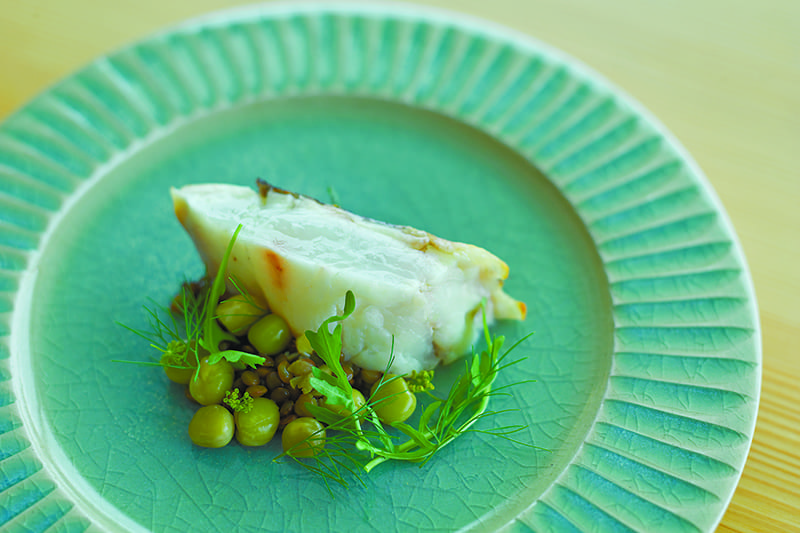
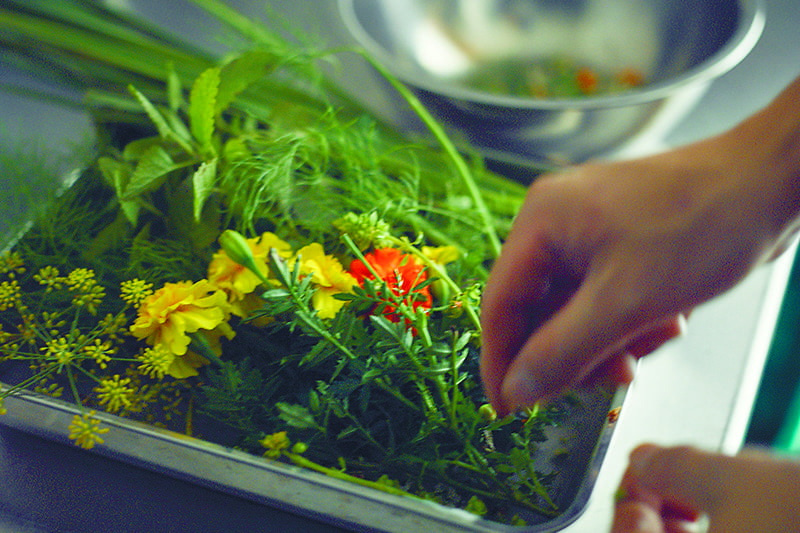
At the on-site restaurant The Kitchen, visitors can enjoy fresh fish from Toyama Bay, and cuisine and beverages made with garden herbs. The restaurant building was designed by the architect Kengo Kuma. | COURTESY: HEALTHIAN-WOOD
A Kengo Kuma-designed accommodation facility (for exclusive per-group booking) is set for completion in 2023. But that will not constitute the completion of Healthian-wood itself. “My hope for the future is that visitors will fall in love with the area and move here permanently,” Maeda said. “There’s a disused elementary school, so I’d like to create a place where children can study, surrounded by this natural beauty.” In this way, he is working to invigorate an area confronting the problem of depopulation and, looking ahead to the 22nd century, expanding his vision for the development of rural communities. This beautiful village of herbs with a view of Tateyama, the mountain that captivated Otomo no Yakamochi long ago, will surely be the envy of the world.
Healthian-wood
Opened in March 2020, the herb garden encompasses an aroma workshop, a restaurant and a semi-outdoor event space.
A sauna hotel for one-group rental is set to open in early summer.
● 57-1 Nitchuwano, Tateyama-machi, Nakaniikawa-gun, Toyama Prefecture
Tel: 076-482-2536 / The Kitchen
11:30 a.m. – 3:00 p.m.
Closed on Wednesdays, New Year’s and during a winter closure period.
https://healthian-wood.jp/ (Japanese only)
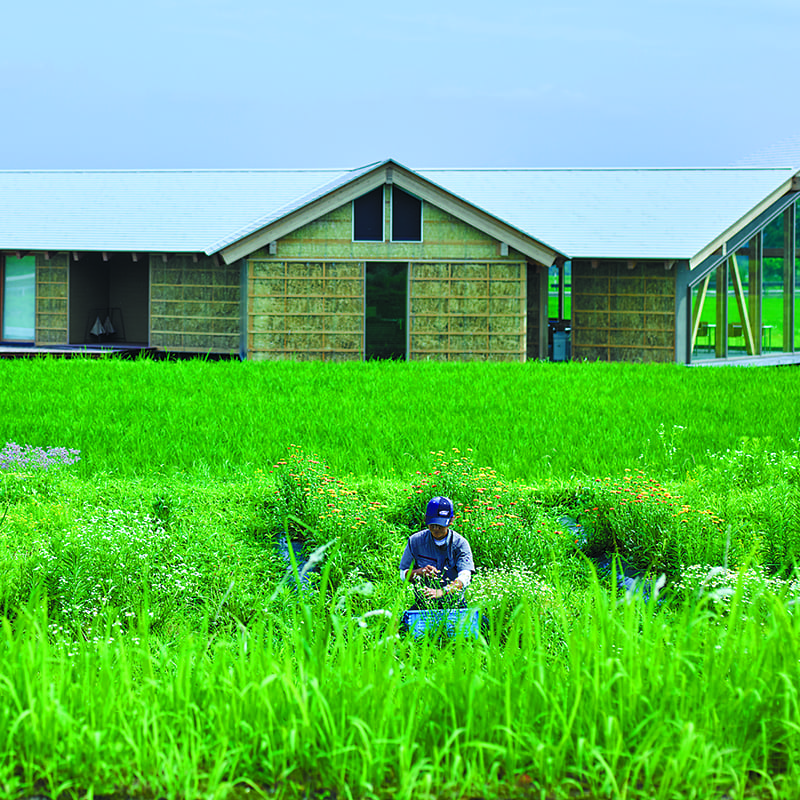
霊峰・立山を望む、田園の中のハーブ園へ。
奈良時代の歌人・大伴家持は赴任した越中(現在の富山県)の立山に魅了され、万葉集で“夏でも雪が解けない立山は見飽きない。神の山に違いない”という歌を詠んだ。この古代より愛された原風景の中に「世界一美しい村」を目指し健康をテーマとする複合施設を作ろうとするプロジェクトが進んでいる。それが2020年3月にオープンした<ヘルジアン・ウッド>だ。そこには現在約3haのハーブ園が広がり、地元の食材とハーブを活かした料理を提供するレストラン、スパ施設が人々を出迎え、サウナ付き貸切宿泊施設もこの初夏にオープンする。
水田の中にたたずむ、「アロマ工房」「イベント広場」「レストラン」の建築も見所だ。設計は世界的な建築家・隈研吾によるもの。現代建築でありながら、かつてこの地域に見られた散居村のように分散して配置された、田園風景と調和した建築群である。2023年には隈研吾設計の一棟貸し宿泊施設も完成する予定だ。
かつて、大伴家持が魅了された立山を望むこの美しいハーブの村は、これから羨望の場となるに違いない。
Return to Sustainable Japan Magazine Vol. 11 article list page

